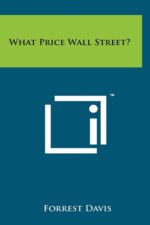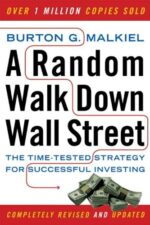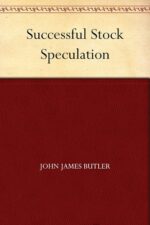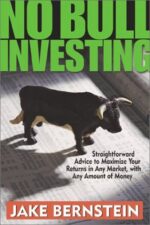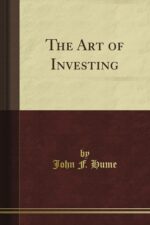In William Jaffe’s Essays on Walras, Dr Walker brings together Dr William Jaffé’s essays on the important and interesting work of Léon Walras, the founder of general equilibrium analysis.
Introductions:
At the time that Jaffe started his career, Walras’s work was familiar on a somewhat superficial level to Swedish and Italian economists, either directly or through the work of Wicksell, Cassel, Pareto, and Barone, but most European economists did not study his contributions to economics, and even the French neglected him.
For example, in the authoritative survey of the history of economic thought by Charles Gide and Charles Rist published in France in successive editions from 1909 to 1947, there is no chapter on Walras, despite the fact that both authors knew him personally. He is mentioned occasionally in the book, primarily in footnotes, and a few of his theoretical ideas are surveyed briefly, but there is no real exposition or analysis of his economic theories.
In the early 1920s, when Jaffe was studying for his doctorate in economics at the University of Paris, he never heard Walras’s name mentioned in his classes. Similarly, outside the Continent, Walras was almost totally ignored. To the majority of English-speaking economists, he was not only unknown but – because his work was in French and because he emphasized the mathematical method – unknowable.
Insofar as his general equilibrium approach began to be incorporated into British and American economics, it was not the result of direct reference to his work by most economists, but a consequence of a study of the Walrasian economics of such writers as H. L. Moore, Irving Fisher, Henry Schultz, and J. R. Hicks. It was Jaffe who changed this situation. He translated Walras’s principal work in economics, the Elements d’economie politique pure, thus making Walras’s theoretical ideas accessible to the English-speaking reader.
He edited Walras’s professional correspondence, furnishing a sourcebook on the evolution of Walras’s ideas and on their relation to the development of neoclassical economics generally. Jaffe also examined, interpreted, and evaluated Walras’s work in the essays presented in this volume. Written over the years from 1934 to 1980, the essays are Jaffe’s original contribution to Walrasian scholarship, for they are his own writings on Walras, as distinct from his efforts as editor or translator.
The first group of essays reflects Jaffe’s belief that biography is important for the study of the history of economic thought. “The view I take of my subject, which is the history of a branch of intellectual discourse known as economics,” he wrote in 1979, is that it is an account of successive achievements by individuals, each endowed with an individuality of his own.
To fully understand the import of the contributions of distinctive individuals, it does not suffice to assess each new theoretical construct as if it were a product of a disembodied spirit. The great innovations that have effectively given a new direction to the way in which we see the world around us are always to some extent expressions and reflections of the personal traits and the private experiences of their respective innovators.
When Jaffe referred to a writer’s traits and experiences, he did not mean such matters as the details of the writer’s domestic life, but his intellectual characteristics and experiences, including his perception of the social and economic conditions and problems of his time. These, Jaffe maintained, are the elements of biography that affect a writer’s selection of theoretical problems and his method of handling them.
Contents:
- PART I. WALRAs’s BIOGRAPHY
- PART II. THE GENESIS AND DEVELOPMENT OF WALRAS’S IDEAS
- PART III. THE SCOPE OF WALRAs’s WORK
- PART IV. SPECIAL TOPICS IN WALRAs’s ECONOMICS
- PART V. WALRAS’S PLACE IN THE HISTORY OF ECONOMIC THOUGHT
William Jaffe's Essays on Walras By Donald A. Walker
| Author(s) | |
|---|---|
| Pages | 391 |
| Format | |
| Publication Year | 1983 |


